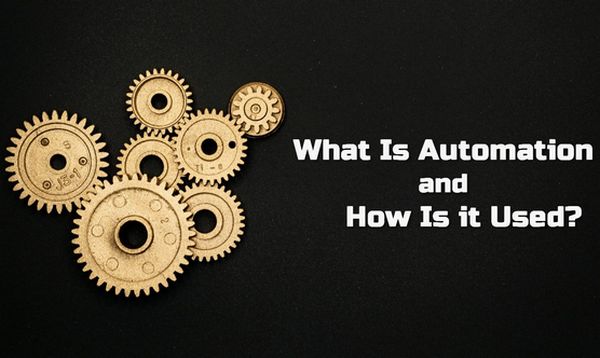Automation is a word that you may have heard used in many different contexts. Automation is a simple concept but can come in many forms and be used in many ways.
What is the Definition of Automation?
The term “automation” is defined by the Merriam-Webster dictionary as “techniques to make equipment, processes, or systems operate automatically”. In practice, automation refers to the concept of processes that occur automatically without human action or intervention.
Examples of automation include when a pre-recorded message is played instructing callers to leave a voice message when the recipient is unavailable, and when irrigation setups hydrate plants at set time intervals.
Automated processes are almost always designed by human action in the first place. For example, the computer code used to perform various processes must be created and developed by humans before they can be allowed to run the processes themselves.
What is the History of Automation?
The earliest automation processes can be traced back to Ancient Egypt, when primitive “water clocks” were invented. In the 1300s, it became obsolete with the invention mechanical clock. Clocks are considered a form of automation, as no human action is required to keep them running after the initial action begins.
The 1600s saw temperature control being used, and the 1700s saw the invention of the first automatic cotton looms. The jump was made by English inventor Richard Arkwright in 1771, with an automatic spinning mill.
The use of automation in factories was met with hostility — in the early 1800s a group of English textile workers known as the Luddites destroyed automated spinning machines out of fear that this invention would render their work obsolete.
Automation became ubiquitous in the early 20th centuryth Century, with widespread electrification, and advanced further in the First and Second World Wars with the development of modern electrical engineering and mass communications.
The earliest iteration of PLC, or programmable logic controller, developed in the late 1950s, and forms the basis of modern computing. In the decades since, computers have become much more powerful and ubiquitous, much like the smartphones that most of us carry in our pockets every day.
What is Automation Used for Today?
Automation is used for a large number of different processes and tasks in almost every aspect of everyday life. As mentioned, clocks and other timekeeping devices are a form of automation, and computers are of course used for countless tasks and operations.
The use of automation in industry and manufacturing, since the Industrial Revolution, continues to this day, and many tasks that were previously performed manually by workers are now carried out through automation. For example, products from manufacturers are usually packed via automatic packaging machines rather than by hand.
The aerospace industry makes extensive use of automation, such as for the steering and stabilization of aircraft and ships. Self-driving car is also advancing and is predicted to become a common sight on roads around the world in the next few years.
How Can Automation Benefit Businesses?
Automated machines and processes can dramatically increase productivity in manufacturing and other industries. Actions performed by automated machines are usually not only faster than those performed by humans, especially when it comes to repetitive tasks, but are also more precise.
The benefits of automation for business are significant. Prior to automation, running a manufacturing business would require hiring large numbers of workers who would form slower and less precise production lines (although there is still an advantage to this approach in the case of hand-crafted products which can fetch a higher price than individual products that have been mass-produced ). In addition, the cost of hiring workers and paying their wages will be deducted from the business profits.
Today, automated production lines can be set up with far fewer workers required and most of the work is done by automated machines such as conveyor belts (although these machines require an initial cost, conveyors can be found for relatively low prices these days on online sites such as Smooth Conveyor). Automation has revolutionized the business world.
What’s the Future of Automation?
It seems that the centuries-old tendency of the role of automation in society to gradually increase will continue. There is much criticism and doubt about whether automation is beneficial or harmful to society—many people think automated processes are necessary to reduce human interaction and increase productivity, and others share the concern with the people of Ludd that automation threatens workers’ jobs and livelihoods. .
These concerns can’t be ignored, but automation isn’t likely to go away anytime soon. If advances in automation technology can be used to benefit humanity, it could become a revolutionary force shaping society and changing the lives of billions of people for the better.








